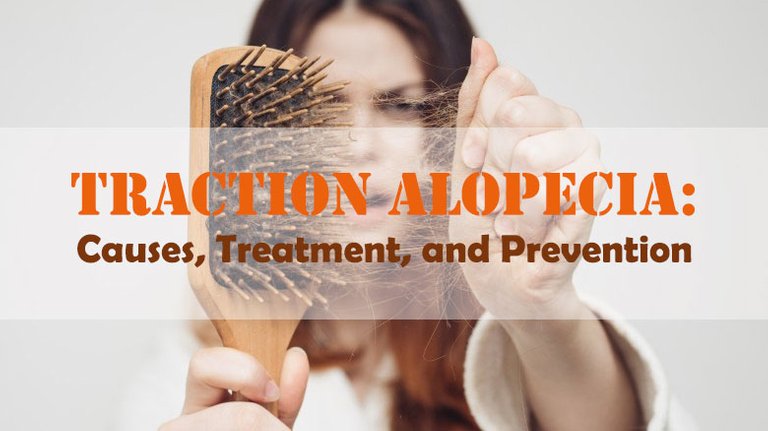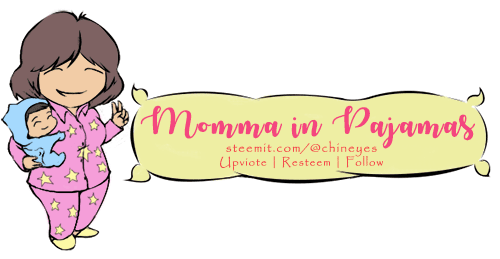
Image Source
It's only natural to lose 50 to 100 strands of hair a day. That's what I tell myself all the time because I lose hair like a dog shedding its fur. Aside from being annoying--since I have to do the cleaning myself--it's also starting to worry me. I'm afraid I'd go bald at the rate I lose hair. So, I started researching and, lo and behold, there is such a thing as traction alopecia. If you're like me then you should carefully read this blog. You might learn a thing or two about this condition and how to prevent excessive hair loss.
✧ What is Traction Alopecia? ✧
Alopecia is a term used to describe hair loss. When you say traction alopecia, this means the hair loss is caused by wearing tightly pulled hairstyles such as buns, braids, or tight ponytails. The hair shaft is loosened from its follicle when you repeatedly pull your hair. This is especially true if you apply chemicals or heat on your hair. With that being said, you may also want to avoid wearing rollers overnight.
This condition was first discovered by doctors in Greenland in the early 1900s. They found out that women who kept wearing tight ponytails had lost some hair along their hairline.
✧ What are the Symptoms? ✧
Early signs of traction alopecia may present itself innocently enough in the form of little bumps on the scalp--which look pretty much like pimples. As the condition progresses, you will start to notice patches of missing and broken hairs. This is usually most noticeable along the front and sides of the scalp, but can also happen on other areas of the scalp.
Aside from hair loss, traction alopecia can also cause other symptoms such as:
- Bumps and redness of the scalp
- Soreness or stinging of the scalp
- Itching and scaling
- Inflammation of the hair follicles known as folliculitis
- Blisters on the scalp that are filled with pus
In more severe cases, the hair follicles can become so scarred and damaged that they can no longer produce new hair. It's also important to note that traction alopecia has different symptoms than the other kinds of alopecia. For example, hair loss can be seen in patches all over the scalp in other forms of alopecia. In traction alopecia, on the other hand, it only affects the part where hair is repeatedly pulled.
✧ 4 Hairstyles that Causes Hair Loss ✧
✧ Ponytails, pigtails, and buns
Ponytails, pigtails, and buns are two of the most common hairstyles because they are so easy to do, but look elegant at the same time. Sadly, they can also damage your hair and cause hair loss. If you wear tight ponytails or pigtails the same way on a regular basis, you may be restricting the circulation of blood to your hair follicles and cause a shock to your scalp. Over time, it will damage the follicles and cause hair loss. To minimize the damage, you can wear your ponytail near or at the base of your nape. Keeping your hair in a bun also causes the same problem, especially if you sleep in it.
✧ Tight braids
Who hasn't ever worn a braid before? Since little girls until now, we still use this hairstyle--well, maybe we've moved up to more sophisticated versions of the braids we used to wear. Let's face it. It's a hairstyle that will transcend time and space. Kidding aside, no matter how much we love this hairstyle, pulling our hair too tight can damage it. So, the next time you wear a braid, it would be best if you ease up a little when pulling your hair.
✧ Dreadlocks
Dreadlocks look so cool and chic that it's oh so tempting to try out this hairstyle. But before you do, you also need to consider the disadvantages. Dreadlocks do not just damage the hair follicles, it can also cause other scalp problems such as dandruff and hair loss.
✧ Cornrows
Cornrows originally came from Africa and the Caribbean. It's a very fashionable and popular hairstyle among men and women. It's so popular that even celebrities sport this hairstyle. Some of them are Ludacris, Sean Paul, Will Smith's daughter Willow, and, of course, Alicia Keys. However, this type of hairstyle braids the hair too close to the scalp which can create tension in the scalp and even scar it. Over time, it can lead to hair loss and other hair damage. Furthermore, you need to make sure to clean your scalp properly to prevent fungal and bacterial infections.
✧ How to Prevent Traction Alopecia? ✧
Traction alopecia is a condition that can be easily prevented. Here are just some measures you can take in order to avoid hair loss.
- Wear your hair loose as much as possible.
- Wear it as low as close to your nape if you really have to pull it up in a bun or ponytail.
- Avoid elastic or rubber band when tying up your hair. Use fabric-coated hair ties instead to lessen hair damage.
- Alternate between different hairstyles every couple of weeks to avoid concentrating the damage on the same location.
- If you use weaves or braid your hair, avoid chemically processing your hair as the chemicals can damage it causing it to break.
- Avoid using hair relaxers.
- When you blow dry or flat iron your hair, make sure that the heat setting is set to low.
- If you must braid your hair or put it in dreadlocks, make sure that the braids are thick because thinner ones tend to do more damage on the hair.
- Sleeping with your rollers on is also not a very good idea. You can wrap your hair instead.
- When wearing a wig, choose the ones with a satin wig cap because they won't pull as hard on the scalp.
By following the preventative steps given above, you can enjoy fuller and more luxurious tresses that are also damage-free.
✧ What are the Treatments for Traction Alopecia? ✧
Treatment can be as simple as changing your hairstyle. The more pulling you subject your hair to, the more damaged it will be. So, avoid tight hairstyles as much as possible. The rule of thumb is if it hurts, it's probably too tight. You may also want to ease up on the use of chemicals and heat as they can be very damaging. Hair loss is also more common among those with very long tresses, so you may want to cut some of its lengths off. If those solutions don't work, then it's time to consult with a dermatologist. Your dermatologist will examine your scalp and may even take a biopsy for further examination of what might be causing your hair loss.
Some of the treatments your dermatologist may prescribe include the following:
- Antibiotics to help prevent open sores from getting infected
- Antifungal shampoos
- Topical steroids to help bring down swelling on the scalp
- Minoxidil (Rogaine) for hair regrowth
- Biotin supplements to help strengthen hair
excessive_hair_loss
A hair replacement procedure may be necessary if you've lost a lot of hair and it's not growing back.
✧ The Bottom Line ✧
Traction alopecia is a reversible condition when treated right away. Your hair will soon start growing back after you stop using overly tight hairstyles and harsh chemicals. However, if you insist on wearing your hair in the same tight hairstyle every day, your hair loss may become permanent. When that happens, only a hair transplant can help you.
Everyday is a lovely day so don't forget to smile. Thanks for dropping by.
Note: This article was first posted on my bitLanders page. Not yet on bitLanders? Sign up now and be rewarded with $$$ for sharing your ideas.


Peace, Abundance, and Liberty Network (PALnet) Discord Channel. It's a completely public and open space to all members of the Steemit community who voluntarily choose to be there.Congratulations! This post has been upvoted from the communal account, @minnowsupport, by chineyes from the Minnow Support Project. It's a witness project run by aggroed, ausbitbank, teamsteem, someguy123, neoxian, followbtcnews, and netuoso. The goal is to help Steemit grow by supporting Minnows. Please find us at the
If you would like to delegate to the Minnow Support Project you can do so by clicking on the following links: 50SP, 100SP, 250SP, 500SP, 1000SP, 5000SP.
Be sure to leave at least 50SP undelegated on your account.